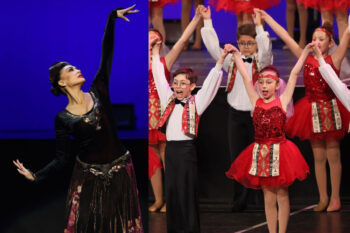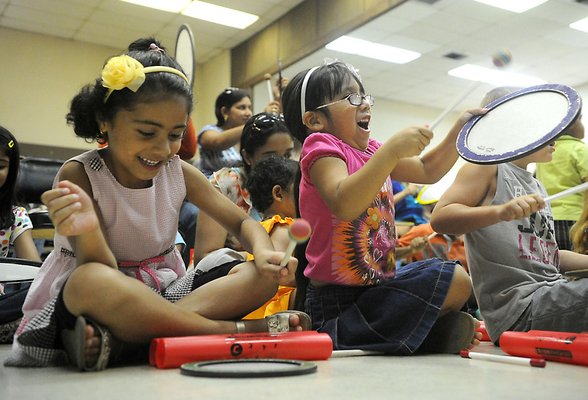Here are some important Armenian holidays and traditions:
Christmas: Armenian Christmas or Soorp Dznound is celebrated annually on January 6. In Armenian tradition, this feast day commemorates not only the birth of Christ but also His baptism by John the Baptist. The latter is remembered through the “Blessing of Water” ceremony, which follows the Divine Liturgy on the same day.
National Army Day: Armenians celebrate January 28 as the day of the national army and the Armenian soldier. This official state holiday commemorates the formation of the armed forces of the newly independent Republic of Armenia in 1992. The day is marked by a military parade in Yerevan, the capital of Armenia. On this day officials usually visit Yerablur Memorial to pay homage to the fallen Armenian soldiers who lost their life defending the homeland.
Saint Sarkis Day: While most of the Western world celebrates Valentine’s Day, Armenians have their own holiday, called St. Sarkis who is known as the warrior patron of love and youth. It’s celebrated 63 days before Easter on a Saturday between mid-January to mid-February. Starting on the eve of the holiday, seekers of love traditionally eat salty cookies (known as aghablit) at night believing that whoever gives them water to quench their thirst in their dream will become their future spouse.
Trndez (Purification): This is a joyful holiday in Armenia celebrated by young adults, newly-weds and all families in general on the evening of February 13. With pagan origins and known as the feast of purification, it is observed 40 days after the birth of Jesus Christ and carries the idea of coming forward to God with fire. Fun activities include making a bonfire, dancing around the fire, jumping over it, singing folklore songs, and eating Armenian special treats and sweets.
Book Giving Day: Armenia annually celebrates Book Giving Day on February 19. This holiday was first introduced in 2008 and is celebrated on the birthday of renowned poet Hovhannes Tumanyan. The purpose of the holiday is to instill a love for history, culture, and reading in the young generation. One of the festive traditions of that day is to gift an interesting book to a close person—something we all at LA County Library can appreciate!
Day of Maternity and Beauty: Although not a public holiday, the Day of Maternity and Beauty is widely celebrated throughout the country. The date of April 7 was chosen because on this date the Armenian Apostolic Church celebrates the feast of Annunciation of the Virgin Mary. It focuses on expressing respect, appreciation and gratitude towards mothers.
Holy Easter: Easter or Soorp Zadik, observed in March or April, is one of the most important holidays of the Armenian church, and it celebrates the Resurrection of Jesus Christ. The celebration starts on Good Friday and lasts through the weekend. Eggs are colored in red symbolizing the blood Christ shed for the salvation of the world.
Armenian Genocide Remembrance Day: April 24 is an important and very emotional day for Armenians. Every person, be it in Armenia or elsewhere in the world, honors the memory of those 1.5 million victims of the genocide that happened at the beginning of the 20th century. Locals walk to the Tsitsernakaberd Genocide Memorial in Yerevan and lay flowers at the eternal flame.
Children’s Day: In the Republic of Armenia, June 1 is a festivity for children celebrated to honor children and the protection of their rights. The streets and public parks of Armenia are filled with festivities and entertainment for children and their parents including educational games, concerts, plays, exhibitions, and chess completions. Children and adults alike cover the pavement of the Liberty Square in Yerevan with colorful chalk drawings.
Vardavar Festival: One of the most beloved holidays is Vardavar, a festival where people splash and drench each other with water. Although now a Christian tradition, Vardavar’s history dates to pagan times and is associated with the deity Astghik who was the goddess of water, beauty, love, and fertility. When Armenia became the first country in the world to adopt Christianity as the state religion in 301 AD, Vardavar became part of the Armenian Apostolic Church as the Feast of the Transfiguration of Jesus Christ.
Independence Day: In 1991, a national referendum was held in Armenia on its withdrawal from the Soviet Union. On September 21, the third and independent Republic of Armenia was created. Ever since, the country celebrates its “birthday” on this day. There’s a parade in Yerevan, and various events are scheduled throughout the day.
New Year: One of the most popular holidays in Armenia is the New Year. Armenians celebrate it for a whole week. Usually, it starts on December 31, on New Year’s Eve. During the week, people visit their relatives, friends, host guests to celebrate the start of the year together and exchange gifts. Tables are full of traditional meals, cookies, and sweets. Kids write letters to Dzmer Papik, or the Armenian Santa Claus to bring them gifts.













